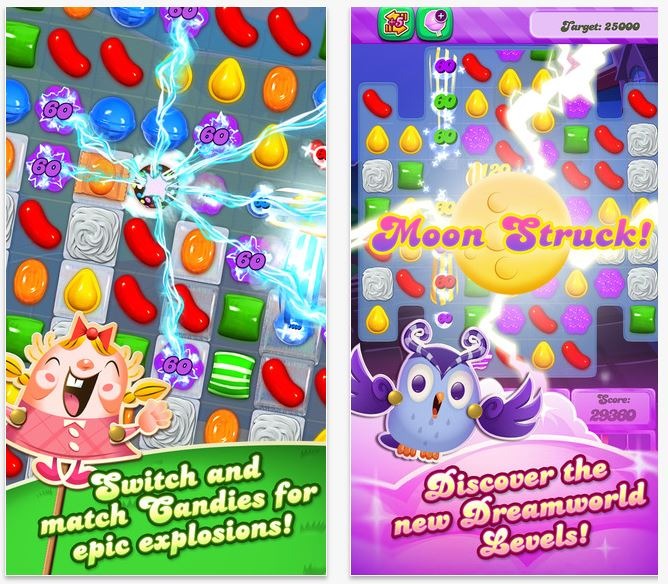Study: Playing Candy Crush Actually Makes Kids Eat More Candy
Playing digital games that focus on food, like the ever-popular Candy Crush, actually makes kids consume more calories afterward, a study from Radboud University in the Netherlands has found.
After playing a candy-focused game, for example, behavioral scientist Frans Folkvord found that children ate 55 percent more candy than their peers, who played a toy-focused game.
Folkvord, who observed the effects of games advertising food on more than 1,000 children, found that even when the brands and logos were clear, children had a hard time identifying when they were playing games that were essentially advertisements for products, like candy or fruit. Furthermore, whether the game focused on candy, like Candy Crush, or fruit, like Fruit Ninja, the subjects ate more candy after playing a food-oriented game.
During one five-minute break from playing food-related games, children consumed 72 more calories than children in the control group. The main concern, Folkvord cautioned, is the ease with which children might be conditioned to develop poor eating habits based on game play. "Children play a game, get hungry and reach for treats," Folkvord said. "As the cycle continues, children fail to learn healthy eating behavior."
What's more, "The results of my study indicate that these advertisements have an even heavier influence on children who are already overweight."
